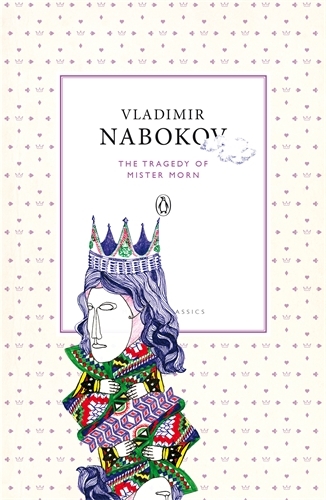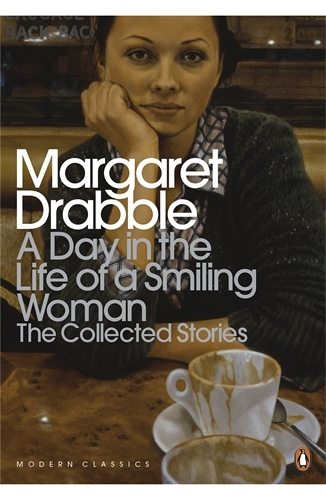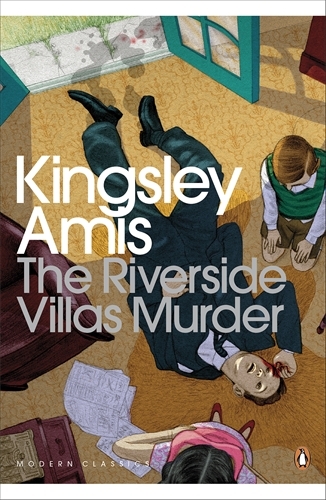Penguin Modern Classics
1281 books in this series
The Galton Case
Twenty years ago, Anthony Galton vanished, along with his streetwise bride and several thousand dollars of the Galton fortune. Now his dying mother wants him found, and Lew Archer is on the case: is Anthony hiding somewhere, happy and eager not to be discovered? But what Archer finds - a headless skeleton, a clever con and a terrified blonde - reveals a game whose stakes are so high that someone is willing to kill.
The Galton Case is a wonderfully devious and poetic look at poverty, greed, murder and identity.
Ross Macdonald's Lew Archer mysteries rewrote the conventions of the detective novel with their credible, humane hero, and with Macdonald's insight and moral complexity won new literary respectability for the hardboiled genre previously pioneered by Dashiell Hammett and Raymond Chandler. They have also received praise from such celebrated writers as William Goldman, Jonathan Kellerman, Eudora Welty and Elmore Leonard.
The Galton Case is a wonderfully devious and poetic look at poverty, greed, murder and identity.
Ross Macdonald's Lew Archer mysteries rewrote the conventions of the detective novel with their credible, humane hero, and with Macdonald's insight and moral complexity won new literary respectability for the hardboiled genre previously pioneered by Dashiell Hammett and Raymond Chandler. They have also received praise from such celebrated writers as William Goldman, Jonathan Kellerman, Eudora Welty and Elmore Leonard.
The Goodbye Look
Lew Archer, world-weary private investigator, is hired by Larry and Irene Chalmers when they suspect that their troubled son Nick is involved in their own burglary. But when a fellow investigator - one who's been working with Nick - turns up dead, Archer soon realizes this isn't simply about some stolen loot. To help their son, Archer must uncover the truth about a kidnap years ago, and discover why the handgun from a decades-old killing apparently turns up at every new and terrible murder.
In The Goodbye Look, Ross Macdonald exposes the damage families can cause one another in the name of love, lies and greed.
Ross Macdonald's Lew Archer mysteries rewrote the conventions of the detective novel with their credible, humane hero, and with Macdonald's insight and moral complexity won new literary respectability for the hardboiled genre previously pioneered by Dashiell Hammett and Raymond Chandler. They have also received praise from such celebrated writers as William Goldman, Jonathan Kellerman, Eudora Welty and Elmore Leonard.
In The Goodbye Look, Ross Macdonald exposes the damage families can cause one another in the name of love, lies and greed.
Ross Macdonald's Lew Archer mysteries rewrote the conventions of the detective novel with their credible, humane hero, and with Macdonald's insight and moral complexity won new literary respectability for the hardboiled genre previously pioneered by Dashiell Hammett and Raymond Chandler. They have also received praise from such celebrated writers as William Goldman, Jonathan Kellerman, Eudora Welty and Elmore Leonard.
The Tragedy of Mister Morn
Morn, a masked king, rules over a realm to which he has restored order after a violent revolution. Secretly in love with Midia, the wife of a banished revolutionary, Morn finds himself facing renewed bloodshed and disaster when Midia's husband returns, provoking a duel and the return of chaos that Morn has fought so hard to prevent.
Nabokov's first major work and his only play, The Tragedy of Mister Morn is translated and published in English here for the first time, and is a moving study of the elusiveness of happiness, the power of imagination and the eternal battle between truth and fantasy.
Nabokov's first major work and his only play, The Tragedy of Mister Morn is translated and published in English here for the first time, and is a moving study of the elusiveness of happiness, the power of imagination and the eternal battle between truth and fantasy.
The Underground Man
When a chance encounter makes him a witness to the abduction of a child, private detective Lew Archer can't help but be drawn into the case, pursuing a trail that leads all too quickly to murder. While forest fires rage in the hills around Los Angeles, threatening the homes of some of the city's wealthiest families, Archer unearths a hidden history of failed marriages, runaway children, and a man's life consumed by a search for the father who abandoned him.
Ross Macdonald's Lew Archer mysteries rewrote the conventions of the detective novel with their credible, humane hero, and with Macdonald's insight and moral complexity won new literary respectability for the hardboiled genre previously pioneered by Dashiell Hammett and Raymond Chandler. They have also received praise from such celebrated writers as William Goldman, Jonathan Kellerman, Eudora Welty and Elmore Leonard.
Ross Macdonald's Lew Archer mysteries rewrote the conventions of the detective novel with their credible, humane hero, and with Macdonald's insight and moral complexity won new literary respectability for the hardboiled genre previously pioneered by Dashiell Hammett and Raymond Chandler. They have also received praise from such celebrated writers as William Goldman, Jonathan Kellerman, Eudora Welty and Elmore Leonard.
The Anti-Death League
In this surreal comedy of soldiers and spies, Lieutenant James Churchill and his colleagues find themselves questioning their purpose. Are they for death or against it? These men of action will travel between the barracks, the lunatic asylum and the house of an aristocratic nymphomaniac in search of answers. For while few know the awful truth about Operation Apollo, the mission they are being trained for, fewer still understand the motives of the powerful psychiatrist Dr Best, who thinks he is surrounded by repressed homosexuals, and none know the identity of the secret agent among them. When the Anti-Death League is founded they are at last offered the chance to rebel and perhaps escape ...
Blue of Noon
Set against the backdrop of Europe's slide into Fascism, Blue of Noon is a blackly compelling account of depravity and violence. As its narrator lurches despairingly from city to city in a surreal sexual and mental nightmare of squalor, sadism and drunken encounters, his internal collapse mirrors the fighting and marching on the streets outside. Exploring the dark forces beneath the surface of civilization, this is a novel torn between identifying with history's victims and being seduced by the monstrous glamour of its terrible victors, and is one of the twentieth century's great nihilist works.
A Day in the Life of a Smiling Woman
Margaret Drabble is one of the major literary figures of her generation. In this collection of her complete short fiction from across four decades, she examines the intense private worlds and passions of everyday people.
From one man's honeymooning epiphany in 'Hassan's Tower' to the journeying fantasies of 'A Voyage to Cythera', and from the sharp joy of 'The Merry Widow' to the bloody reality of the collection's title story, these are moving, witty and provocative tales, exploring cruel and loving relationships, social change and personal obsessions, and confirming her status as a leading practitioner of the art of the short story.
From one man's honeymooning epiphany in 'Hassan's Tower' to the journeying fantasies of 'A Voyage to Cythera', and from the sharp joy of 'The Merry Widow' to the bloody reality of the collection's title story, these are moving, witty and provocative tales, exploring cruel and loving relationships, social change and personal obsessions, and confirming her status as a leading practitioner of the art of the short story.
Eroticism
A philosopher, essayist, novelist, pornographer and fervent Catholic who came to regard the brothels of Paris as his true 'churches', Georges Bataille ranks among the boldest and most disturbing of twentieth-century thinkers. In this influential study he links the underlying sexual basis of religion to death, offering a dazzling array of insights into incest, prostitution, marriage, murder, sadism, sacrifice and violence, as well as including comments on Freud, Sade and Saint Theresa. Everywhere, Eroticism argues, sex is surrounded by taboos, which we must continually transgress in order to overcome the sense of isolation that faces us all.
The Folks That Live On The Hill
Harry Caldecote is the most charming man you'll ever meet, a convivial academic who devotes his life to others. He is on call when his alcoholic niece falls into strange hands, when his brother threatens to emulate Wordsworth, when his son's lesbian lodger is beaten up by her girlfriend. He endures misplaced seductions, swindles and aggressive dogs just to keep the peace at the King's pub in Shepherd's Hill. But when the Adams' Institute of Cultural and Commercial History in America offers him the opportunity to do 'whatever he wanted to do' in a picturesque lakeside town, he faces a choice between freedom or responsibility - and whether to take charge of his own life.
I Want It Now
The quickest way to get rich is to marry someone rich, but how do you do this if you aren't yet rich? TV chat-show host Ronnie Appleyard is preoccupied with this question as he pursues wealthy heiress Simona Quick over two continents in the company of braying aristocrats, Greek shipping magnates, American dandies and the dreaded mother-in-law to be. But as he comes closer to his prize other questions present themselves. Is the androgenous Simona really worth it? Why doesn't she like sex? Is it possible to drink all day? With his unerring eye for absurdity and class satire Kingsley Amis shows us what happens when money meets naked ambition.
L'Abbé C
L'Abbé C is a shocking, unnerving narrative about the intense and terrifying relationship between twin brothers. Charles is a modern libertine, dedicated to vice and depravity, while Robert is a priest so devout that he is nicknamed 'l'Abbé'. When the sexually wild Eponine intrudes upon their suffocating relationship, anguish, delirium, and death ensue. Charged with sensuality and a heightened, dreamlike atmosphere, this novel portrays the darkest and most profound aspects of human experience.
Literature and Evil
'Literature is not innocent,' stated Georges Bataille in this extraordinary 1957 collection of essays, arguing that only by acknowledging its complicity with the knowledge of evil can literature communicate fully and intensely. These literary profiles of eight authors and their work, including Emily Brontë's Wuthering Heights, Baudelaire's Les Fleurs du Mal and the writings of Sade, Kafka and Sartre, explore subjects such as violence, eroticism, childhood, myth and transgression, in a work of rich allusion and powerful argument.
My Mother, Madame Edwarda, The Dead Man
In these three works of erotic prose Georges Bataille fuses sex and spirituality in a highly personal and philosophical vision of the self. My Mother is a frank and intense depiction of a young man's sexual initiation and corruption by his mother, where the profane becomes sacred, and intense experience is shown as the only way to transcend the boundaries of society and morality. Madame Edwarda is the story of a prostitute who calls herself God, and The Dead Man, published in 1964 after Bataille's death, is a startling short tale of cruelty and desire. This volume also contains Bataille's own introductions to his texts as well as essays by Yukio Mishima and Ken Hollings.
New Maps of Hell
In this hilarious, inspiring and provocative series of essays, Kingsley Amis introduces every reader to the wonders and value of science fiction writing. From the extraordinary ideas but sexless science of Jules Verne to the power of H. G. Wells's terrifying storytelling; from the brilliance of bad science fiction writing to the potency of their important ideas; from a portrait of the average SF reader to Amis's sad prediction that this genre will never make it in film or television, New Maps of Hell is a warm and witty exploration of a world many readers may be yet to discover.
Once a Jailbird
For Willi Kufult, prison life means staying out of trouble, keeping his cell clean, snagging a precious piece of tobacco - and dreaming of the day of his release.
Then he gets out.
As Willi tries to make a new life for himself in Hamburg, finding a job and even love, he still cannot escape his past. Gradually he becomes sucked into a world of drink, desperation and deceit, and with one terrible act, he is ensnared in a noose of his own making...
Hans Fallada's dark and moving 1934 novel brilliantly describes a seedy criminal underworld of shabby lives and violent deeds, showing how our actions always catch up with us.
Then he gets out.
As Willi tries to make a new life for himself in Hamburg, finding a job and even love, he still cannot escape his past. Gradually he becomes sucked into a world of drink, desperation and deceit, and with one terrible act, he is ensnared in a noose of his own making...
Hans Fallada's dark and moving 1934 novel brilliantly describes a seedy criminal underworld of shabby lives and violent deeds, showing how our actions always catch up with us.
The Riverside Villas Murder
A mummy is stolen from a small town museum along with some Roman coins and a soaking wet man collapses in fourteen year old Peter Furneaux's living room bleeding from the head. What was a suspected student prank is followed by murder. At first it is impossible to see the connection, but the eccentric Colonel Manton does. With Peter's help the Colonel unravels a mystery that strikes fear into the heart of a genteel suburban neighbourhood and gives Peter rather more excitement than he bargained for at the tennis club social. This meticulously paced thriller shows Amis at his most subtle and daring.















